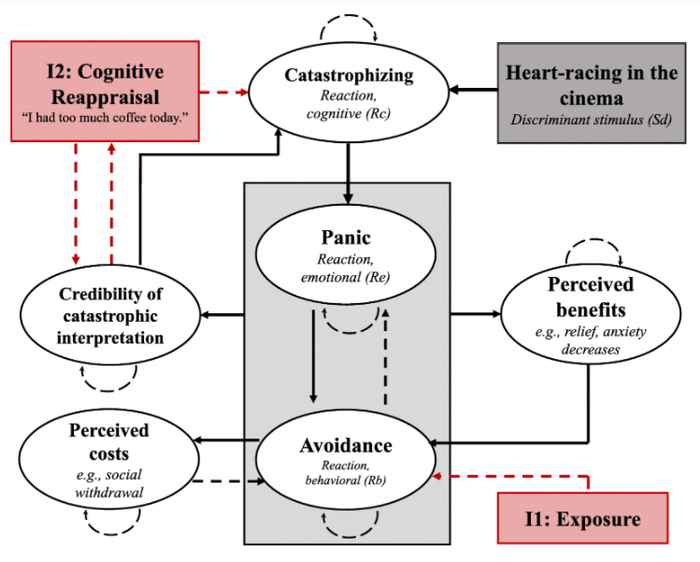3.4 Bridging the gap between complexity science and clinical practice by formalizing idiographic theories: a computational model of functional analysis
Julian Burger, Date C. van der Veen, Donald J. Robinaugh, Rick Quax, Harriëtte Riese, Robert A. Schoevers and Sacha Epskamp
Keywords: Dynamical systems; Mental health; Idiographic science
Authors on the article:
Over the past decades, research in psychopathology has made significant steps towards acknowledging mental disorders as complex phenomena. Individuals suffering from mental health conditions do so in ways that are dynamic, that are caused and maintained by a multitude of factors, and that are unique to their person. Moving forward, acknowledging these dynamic, multicausal, and personalized aspects of psychopathology calls for new ways of modeling mental disorders that transcend traditional statistical approaches.
Computational models and psychotherapy
In this paper, we draw on techniques from dynamical systems theory to provide a framework of modeling theories that are tailored to the personal context of a given individual. In clinical practice, these personalized theories are commonly referred to as case conceptualizations. We highlight how mathematical accounts (“formalizations”) of such case conceptualizations equip clinical practitioners and researchers with a tool to evaluate their theories through computer simulations. Such simulations can subsequently also be used to explore the effects of clinically validated interventions, allowing to gauge the short and long-term costs and benefits of these interventions for a given individual.
Bridging the gap between complexity science and clinical practice
One of the main advantages of using these computational models is that they result in models that are rooted in clinical theories. In this paper, we discuss this benefit and highlight how computational models could play a key role in bridging the gap between complexity science and clinical practice. First, they can inform clinical practice, by providing a tool that allows the systematic evaluation of case conceptualizations, and by testing interventions through computer simulations. Second, they can inform the design process in mental health research, as simulation results can generate insights for many challenging decisions, such as variable inclusion.
Example: Case conceptualization of patient suffering from panic disorder
To illustrate the principles of formalizing case conceptualizations, the paper presents an example of a hypothetical patient suffering from panic disorder. In this example, we formalized the case conceptualization by ascribing ordinary differential equations to variables, coding the momentary rate of change in one variable as a function of related variables. Using this system of differential equations, we simulated data for different scenarios: 1) No treatment: A scenario in which no clinical interventions are performed, 2) Exposure: A scenario in which the patient is not avoiding the fearful situation, 3) Cognitive reappraisal: A scenario in which the patient is trained in re-framing their interpretation of the fearful situation, and 4) Exposure + Cognitive reappraisal: A scenario that combines the interventions in 2) and 3), as commonly done in cognitive behavioral therapy. The results of these simulations align with behavior typically observed in clinical practice, for example, a momentary increase of panic when using exposure followed by a decrease in panic reactions.
Connections to other fields
This paper aims to connect the fields of computational science and complexity research with clinical psychology and psychiatry, as well as idiographic science. We hope that such contributions will foster interdisciplinary exchange between these disciplines in the future.

Burger, J., van der Veen, D.C., Robinaugh, D.J., Quax, R., Riese, H., Schoevers, R.A., Eskamp, S. (2020) Bridging the gap between complexity science and clinical practice by formalizing idiographic theories: a computational model of functional analysis. BMC Med 18, 99. https://doi.org/10.1186/s12916-020-01558-1